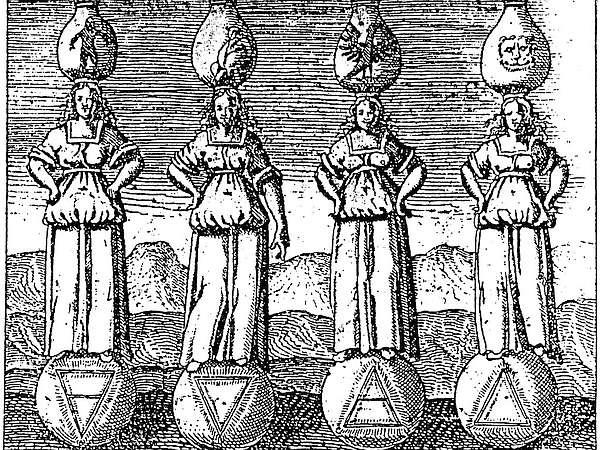MA-Thesis Written for the MA in Myth, Cosmology and the Sacred
Summary
For many centuries astrologers worked with the classical elements of fire, air, water and earth in delineating horoscopes. Influenced by the depth psychology of Carl Gustav Jung, astrologers in the second half of the twentieth century starting replacing these elements with Jung’s psychic functions (intuition, thinking, feeling and sensation).
According to these astrologers, intuition can be equated with fire, thinking with air, feeling with water and sensation with earth (e.g. Greene 1977, Hamaker-Zondag 1978). Other astrologers criticized this way of working, arguing that Jung’s functions cannot be equated to the classical elements (Hand 1981, Banzhaf 1994).
This thesis investigates the relation between Jung’s four psychological types and the four classical elements. Can they be equated to each other? More specifically, how does Jung describe change from the dynamic between psychic functions, and does this theory converge with classical theories on elements? To answer these questions, classical Greek theories of elements are discussed, starting with the Milesian thinkers in the sixth century BCE and ending with Aristotle’s systematized and refined model. These theories are then compared to Jung’s ideas on psychological types and on the quaternity.




Social Media